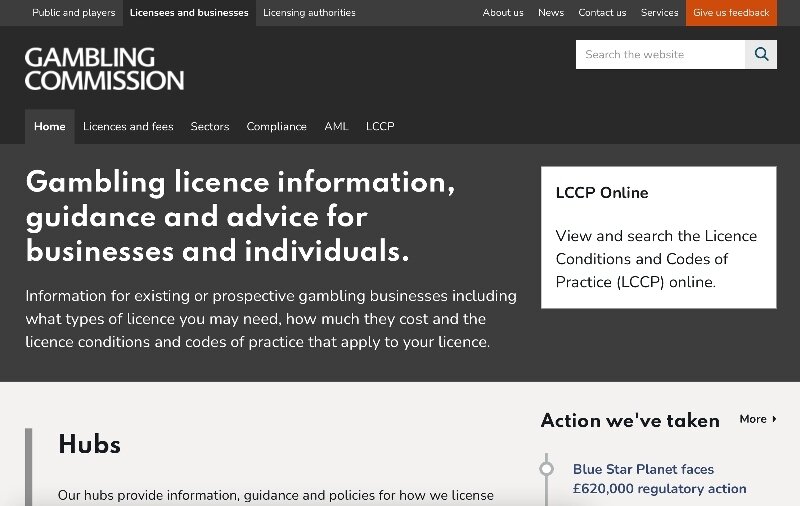Everything You Need to Know About Sports Betting and Casino Licence Application Fees
The online casino industry in the United Kingdom is thriving. For the first time last year, online casinos surpassed high-street casinos in market share, and more than 30 million online gambling accounts were opened across the country. It’s not easy to break into the industry as an investor or entrepreneur. The competition is fierce, the legal aspects are complex, and the initial cost of even applying to open an online casino can deter some people.
Others, however, have not been deterred. You’ve probably heard of the big boys who rule the casino scene, such as Betfair and 888 Casino. However, you may be unaware that they are only two of over 2,400 online casino sites currently operating in the United Kingdom.
That is a lot of competition. And those who want to launch a casino site need to know what they’re doing in order to carve a space in the market.
It all starts with applying for a casino licence. This can take years to prepare for, and you will likely need plenty of cash to get it right. Saying that, many entrepreneurs and investors have succeeded in launching online casinos – so why can’t you?
Online Casino Stats
Before we look at how to start a casino and the licensing fees involved, it’s worth knowing what the market looks like right now. Online casinos generated £14bn in gross gambling yield last year, and paid £2.8bn in tax. That’s a lot of money ending up in the government coffers, but not enough to deter operators and investors from running their casinos.
It’s also evident where the market is heading. There are currently 144 highstreet casinos in the UK, but more than 2,400 online operators. It’s not hard to figure out which are becoming more popular.
And yet customer data shows gambling remains an activity for slightly older generations who have more excess income. The latest data reveals 45-54-year-olds are the most likely to gamble (32.8%) – and that people in their 20s aren’t so interested.
This bucks the perceived wisdom that online gambling is the perfect stage for young bettors. What’s more, just 0.8% of gamblers play casino games, compared to 22.3% who play the lottery and 4.9% who bet on sport.
Yet investing in a casino is still worth it, according to the latest data. Casinos are usually in profit, and even the UK’s upcoming changes to the Gambling Act won’t turn gaming operators into a bad investment overnight.
In fact, the latest advances in technological innovation, from mobile casinos through to the metaverse and America’s gambling boom, means it’s never been a better time to invest in the industry. But you need to make sure you have the right licence and can afford it.
How To Get A Casino Licence
Gambling licences provide gaming companies with the legal backing to operate gambling, lottery, sports betting and games of skill for money. You cannot operate a casino or sports betting platform in the UK without a gambling licence.
Licences are approved, distributed and regulated by the UK Gambling Commission (UKGC). It’s the UKGC that operators will send their applications to when seeking a licence.
Now, gambling licences work in many different ways depending on your chosen sector. But in effect they all do the same thing. They provide an operator with the permission to undertake gambling activities, and also act as a regulatory guide for what an operator can and can’t do.
The three objectives of licensing is it:
- keeping crime out of gambling
- ensuring gambling is conducted fairly and openly
- protecting children and vulnerable people from being harmed or exploited by gambling
You can apply for a licence online via the UKGC website. You will be asked to submit a lot of details, covering the set-up of your organisation or investment, safeguarding protocols, and aims for the business. You will also need to select the correct licence to apply for – and there are scores of them.
The UKGC will assess your application and look at:
- Identity and ownership
- Finances
- Integrity
- Competence
- Criminality
Applicants must be registered in the UK. If the UKGC rejects a licence application then applicants will not get their money back.
Type Of Casino Application
There are scores of casino and sports betting licence types, so choosing the right one might be difficult. However, the majority of operators apply for either a standard remote casino operating licence, or a remote general betting standard real events licence.
Below are examples of these licences, and the fees required to apply…
Remote Casino Operating Licence
The most common online casino licence, the remote casino operating licence allows casinos to: “offer casino games to customers via a website, mobile phone, TV or other online service. This includes poker, roulette, blackjack and other casino games, as well as online slot games”.
In order to hold this licence an operator also needs:
- to hold a gambling software operating licence
- to not contract directly with any of the customers who play the casino games you provide that is only customers of another operator can access your casino game content via that other operator’s website or app
There is an up-front application fee that ranges from a few thousands pounds to more than £91,000, depending on the annual gross gambling yield of your casino:
- Category F1 – GGY Less than £550,000 | £4,224
- Category G1 – GGY £550,000 or greater, up to but excluding £2m | £10,323
- Category G2 – GGY £2m or greater, up to but excluding £5.5m | £10,323
- Category H1 – GGY £5.5m or greater, up to but excluding £25m | £16,235
- Category I1 – GGY £25m or greater, up to but excluding £100m | £23,834
- Category J1 – GGY £100m or greater, up to but excluding £250m | £38,363
- Category K1 – GGY £250m or greater, up to but excluding £550m | £54,131
- Category L1 – GGY £550m or greater, up to but excluding £1bn | £91,686
- Category M1 – GGY £1bn or greater | £91,686
On top of this there are annual casino fees to pay the UKGC:
- Category F1 – GGY Less than £550,000 | £4,199
- Category G1 – GGY £550,000 or greater, up to but excluding £2m | £10,056
- Category G2 – GGY £2m or greater, up to but excluding £5.5m | £14,694
- Category H1 – GGY £5.5m or greater, up to but excluding £25m | £20,626
- Category I1 – GGY £25m or greater, up to but excluding £100m | £55,089
- Category J1 – GGY £100m or greater, up to but excluding £250m | £105,626
- Category K1 – GGY £250m or greater, up to but excluding £550m | £211,505
- Category L1 – GGY £550m or greater, up to but excluding £1bn | £599,979
- Category M1 – GGY £1bn or greater | £793,729 + £125,000 for each additional £500m of GGY above £1bn
So, even a small online casino operator will need to pay more than £8,000 in fees within its first year alone.
Remote General Betting Standard Real Events Licence
The other common gambling licence found in the UK is the remote general betting standard real events licence. This “allows the provision of facilities for betting on real events (but not virtual events) by means of remote communication (for example, a website).” Effectively, holders of this licence can provide online sports betting odds and markets for other events on their site and app. Telephone betting companies who yield more than £550,000 a year also need this licence.
It’s also likely that you will need to hold the remote general betting standard virtual events licence alongside this licence.
There is an up-front application fee. The fees range starts more expensive than a Category F1 casino licence, but Category L1 is nowhere near the size of the fee required by bigger casinos.
- Category F1 – Less than £550,000 | £4,693
- Category F2 – £550,000 or greater, up to but excluding £2m | £4,693
- Category F3 – £2m or greater, up to but excluding £5.5m | £4,693
- Category G1 – £5.5m or greater, up to but excluding £15m | £10,323
- Category G2 – £15m or greater, up to but excluding £55m | £10,323
- Category H1 – £55m or greater, up to but excluding £110m | £13,643
- Category I1 – £110m or greater, up to but excluding £220m | £23,435
- Category J1 – £220m or greater, up to but excluding £550m | £28,154
- Category K1 – £550m or greater, up to but excluding £1bn | £41,243
- Category L1 – £1bn or greater | £41,243
Annual fees are, however, similar to the online casino industry in size. Indeed, L1 sports betting sites must pay more than £1m in licensing alone each year.
- Category F1 – Less than £550,000 | £5,282
- Category F2 – £550,000 or greater, up to but excluding £2m | £13,432
- Category F3 – £2m or greater, up to but excluding £5.5m | £15,536
- Category G1 – £5.5m or greater, up to but excluding £15m | £51,334
- Category G2 – £15m or greater, up to but excluding £55m | £72,365
- Category H1 – £55m or greater, up to but excluding £110m | £116,602
- Category I1 – £110m or greater, up to but excluding £220m | £213,052
- Category J1 – £220m or greater, up to but excluding £550m | £435,640
- Category K1 – £550m or greater, up to but excluding £1bn | £767,027
- Category L1 – £1bn or greater | £1,077,027 + £200,000 for each complete additional £500m of GGY above £1bn
So, how much does a casino licence cost? Whether it’s for online casinos or online sports betting, the answer is “a lot”. However, gambling companies can generally stomach these licensing costs because of the profits they’ll make down the line.
Join a casino today
Casinos are expensive to launch and operate, and some casinos do fail despite the boom in online gambling over the past two decades. Many investors and entrepreneurs are casino players themselves – they use their experiences in the virtual lobbies to help craft their own sites.
And there’s never been a better time to join high stakes casinos and discover where investors are placing their money. Our reviewers take a look at some of the very best payout online casinos in UK, and assess the casino software that adheres to UKGC standards.



